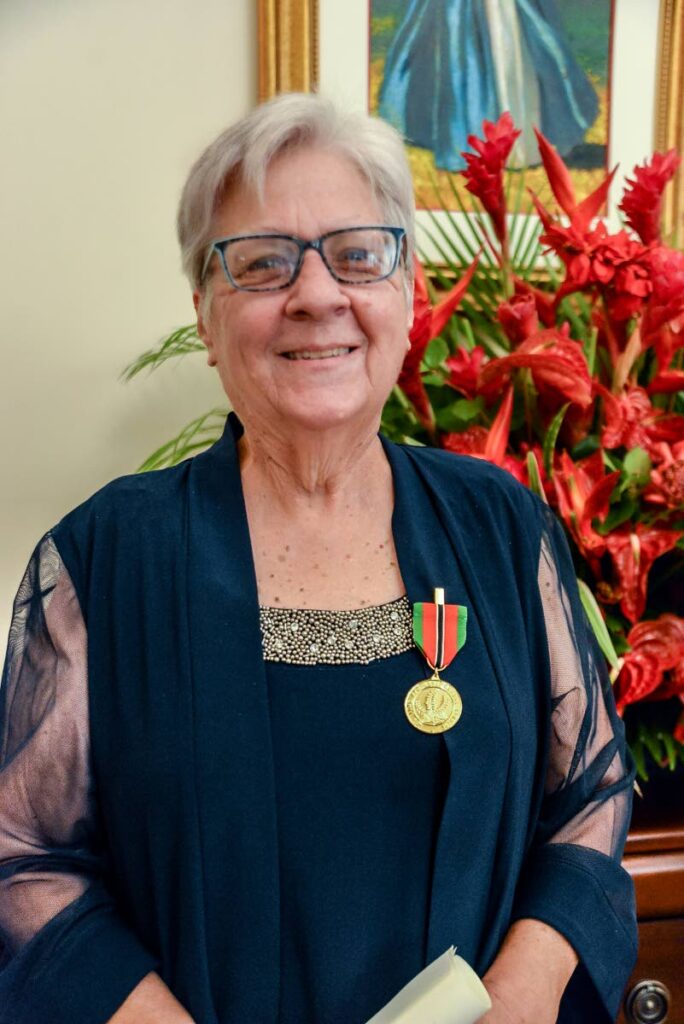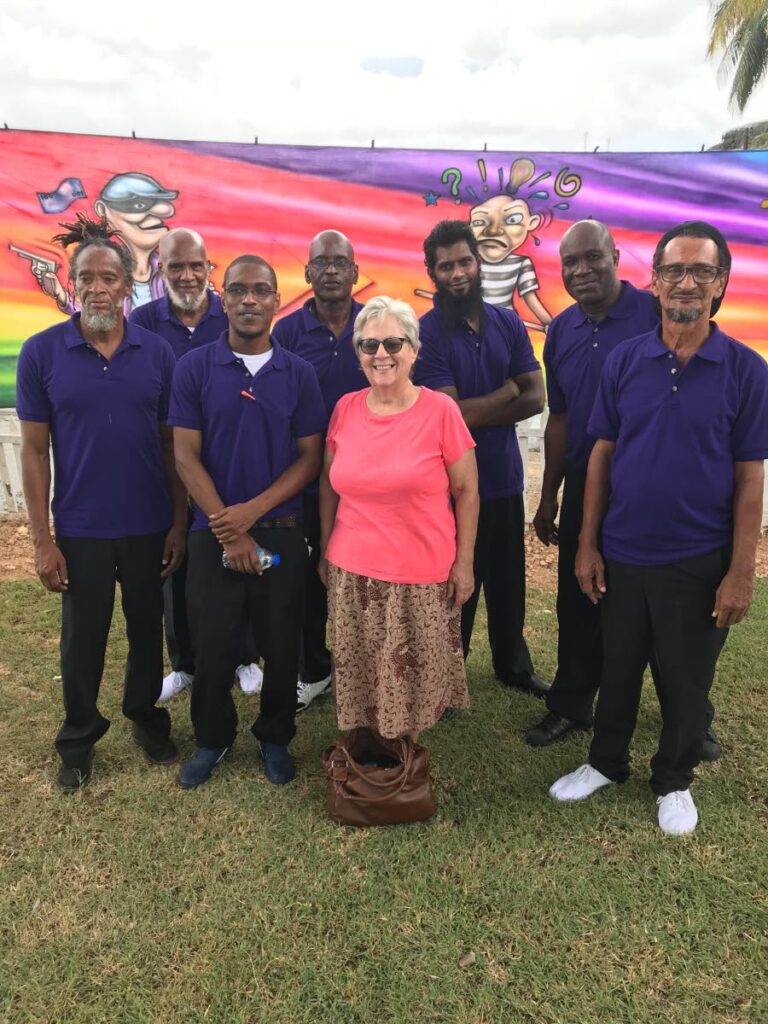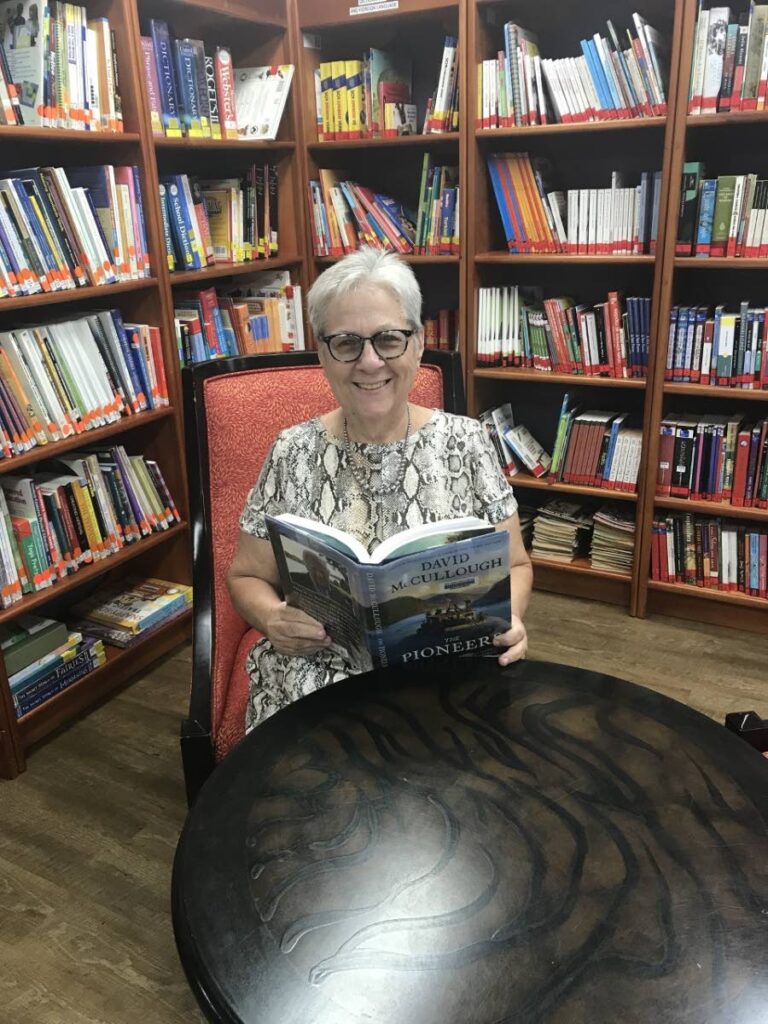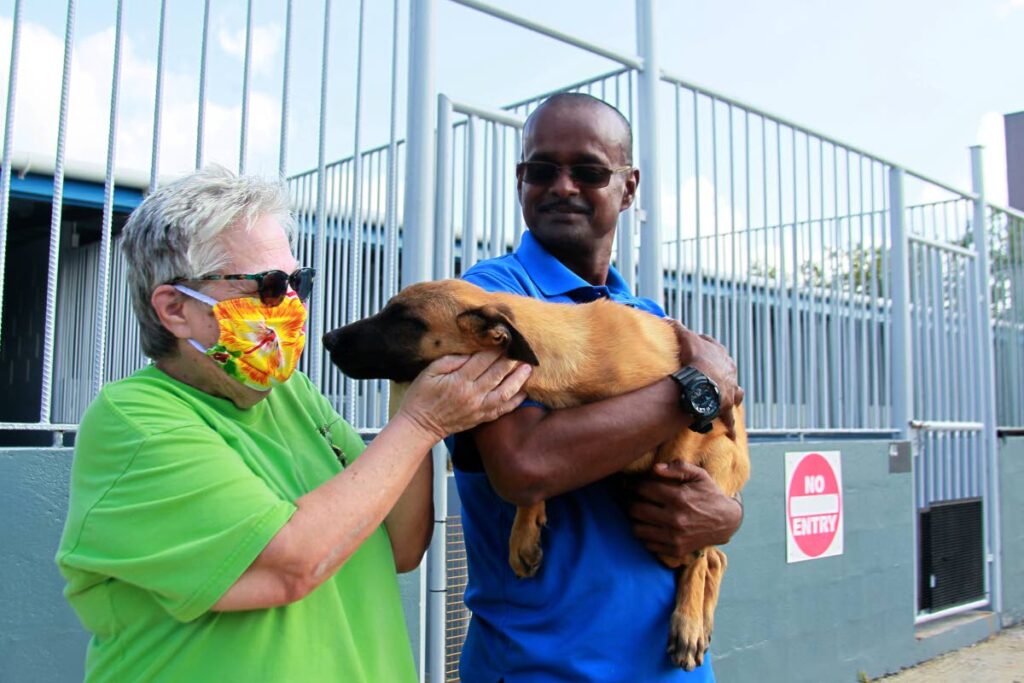Award-winner Debbie Jacob: 'Think of something you can do to make the country better'

Newsday columnist, journalist, writer and prison reform advocate Debbie Jacob took what might many people might define as tragedy and turned it into something positive.
When she was affected by crime, Jacob decided to take the approach of trying to understand it. That led to her work with the Prison Service and the police Canine Branch, as well as the NGO, the Wishing for Wings Foundation, of which she is the president.
In turn, that work has led to her receiving the Chaconia Medal (Gold). She was one of the 2020 national-award recipients last Monday at President’s House, Port of Spain.
The US-born Jacob, who was recently made a citizen of TT, many years after she first applied, did not expect to receive a national award. She was simply doing what “her heart and soul said she needed to be doing,” she said in a phone interview with WMN.
“When it happened, the first thing that came to mind was that the inmates that I am so close to and the canine (unit) dogs that I am so close to – it is nice to see that work is being recognised.
“Those, for me, are the two most voiceless entities there are.”
As a writer, Jacob has always focused on giving a voice to the voiceless.

She began her work with the Mounted and Canine Branch at the same time as she started her prison work, she said.
“Everybody knows about the prison work, but not very many people know about the work I have done with canines. And I needed that as a balance. They have always provided sanctuary for me, first to play with the retired dogs and then during the pandemic to play with the puppies – because the prison work is very rewarding, but also emotionally difficult.”
It has not been not easy to see some of the young men with potential in prison for over ten years now still awaiting their trials.
“What makes it even more difficult is that it is not getting better, it is getting worse. You can become really depressed with that work, so it is nice to have that balance...The canine police have given me that balance, to just get away from everything and play with the dogs.”
That led her to want to improve the conditions of police dogs. She has made possible the refurbishing of the kennels in Chaguaramas and Point Fortin. She has also worked on a retirement policy for the dogs and the police’s puppy programme.
Being around the police dogs allows Jacob “to get away from everything and not to think about anything, and simply experience pure joy.”
When she started working here, Jacob did not think she would be working with the Prison Service or win an award.
“When I started as a journalist, I always gravitated toward stories where people would have a voice. Normal people, average people that would not get it.
“Then I did a lot of entertainment features, because when I first came and we were covering calypso tents and covering events... I was really kind of shocked that there weren’t that many in-depth features on calypsonians.So I started doing that.
"So I always wanted to tell people’s stories and the one’s who do have a voice, have a voice on a different level.”
Jacob’s work at the Youth Training and Rehabilitation Centre (YTC), Arouca began when she was a librarian at the International School of Port of Spain, Westmoorings.
For her, it is an unwritten rule that librarians should be a part of the community in which they serve.

“And being involved in some kind of community service. And the International School is not your typical school in Trinidad, and I wanted that connection to Trinidad again.
“And it was a teacher who told me they needed an English teacher at YTC and I put it off for a year. I said, ‘I can’t afford free work.’
"Then I started to think about things. My family and I were hit with a lot of crime and I was interested to learn more about these kids who were committing these crimes.
“Then when I went to YTC to do that work, I just thought it would be a class. I did not think it would go on and evolve…”
Jacob transitioned with some of the boys from YTC to the Port of Spain prison, and her work kept developing from there.
In the prison, she taught English language and literature. She also helped introduce skills-based programmes such as barbering and PVC furniture-making into the prison.
The prison debate competition she started has also been well documented. The debates have been introduced to all ten prisons in TT.
Jacob said her children, Ijanaya and Zino, are very supportive of her and proud of what she has done because she is working with so many young men whom society has written off. She said growing up with her, her children realised it was important for everyone to have a voice and everyone should be accepted.

Jacob knew she would be receiving an award weeks in advance, and this gave her time to think about it.
What crossed her mind in thinking about it was, “I get to walk across a stage and accept an award for work that I have done. (But) nothing I have done I have done by myself.”
Her voluntary work has been done collaboratively with people and organisations that include the Children’s Ark, the US Embassy and the Police Canine Unit.
“The more successful you are...the more you have collaborated with people and organisations,” she said.
Jacob said during the pandemic she was able to bring 30,000 masks into the prisons, with the assistance of Gary Aboud of Mode Alive and other organisations.
“People just never let me down. The National Gas Company helped me with the Point Fortin kennel,” she said, giving an example. The US Embassy helped her to get the grant for the kennels and NGC helped refurbish the dorms.
If she had any advice to give to young journalists it would be to recognise that about 20 per cent of TT is really visible.
“As a journalist you have to dig into all the corners of that other 80 per cent, because that is the majority of the country.”
She said young journalists need to find ways to bridge the gap and look behind some of the societal issues like crime that appear visible.
Another thing that worries her about journalism today is credibility.
“When I first started out, you couldn’t run a story for Owen Baptiste (late journalist and editor-in-chief of the Trinidad Guardian and Trinidad Express) unless you had three different angles, checkpoints.
“In social media, often you have to get things out as quickly as possible and, ‘I’ll correct it later.’
"That is not good enough. It is difficult to establish credibility if you don’t realise from the beginning that people are relying on you for the real story and the true story right away.”
Although Jacob is the author of five books, she wants to work on one documenting her debate teams.
She recently completed a book that took her 12 years to write, a look at crime from the perspective of the canine branch. She said the dogs have files just like police officers, and she could trace the unit back to the first dogs in 1952.
“So you could see how crime developed in TT.”

This will be published by Arawak Publishers in Jamaica.
She is also working on a book about facing retirement with the retired police dogs she's spent four and a half years with.
She has many more projects planned. Just before the pandemic, she had been working to try to get prisons abroad to debate with inmates in TT, and that is something she hopes to get done this year.
She also wants to get back to her skills-based programmes, like barbering.
“I am an immigrant...I want to do more work with immigrants. The best way I can do that, and what I wanted to do before the pandemic, is work more with the Spanish-speaking inmates in the prisons.”
She wants to hold some debates in Spanish.
She has now lived in TT more years (38) than she lived in the US (30), and has recognised that there is much more TT can do as a country.
“The crime problem is not insoluble. I am one person and I have been able to do so much by collaborating with other people. If everybody – one person at a time – just starts to collaborate with somebody and follow your passion…Think of something that you can do to make the country better.”
Jacob said what counts is putting one’s heart out there and believing in TT.


Comments
"Award-winner Debbie Jacob: ‘Think of something you can do to make the country better’"